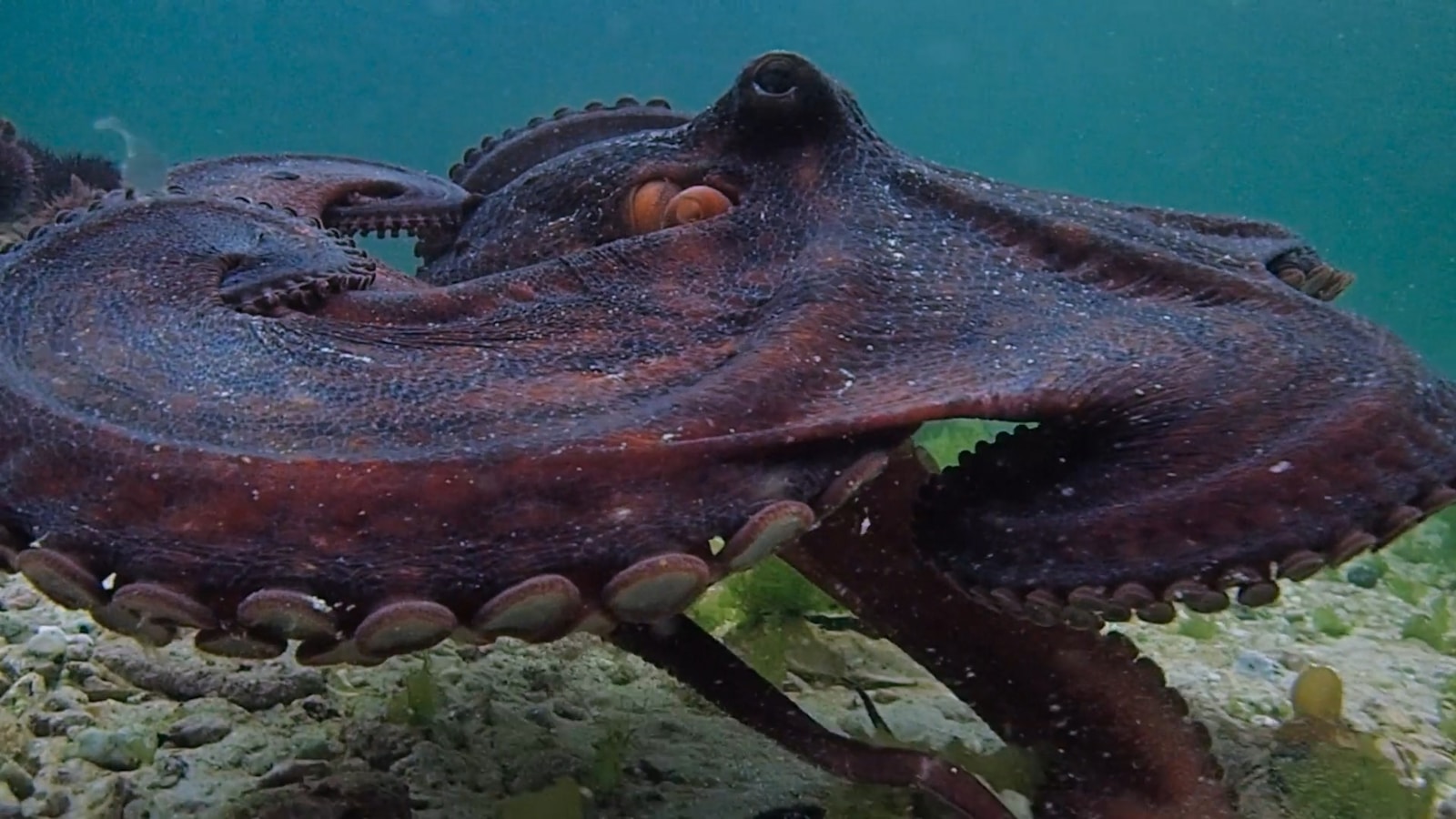Octopuses and cuttlefish demonstrate surprising problem-solving skills, acing tests typically reserved for human toddlers.
Key Points at a Glance
- Cephalopods, including octopuses and cuttlefish, successfully passed a version of the “marshmallow test,” a classic measure of self-control.
- The study highlights cephalopods’ ability to delay gratification, a trait linked to advanced cognitive abilities in humans.
- Researchers suggest these findings could deepen our understanding of intelligence in non-mammalian species.
Cephalopods, known for their uncanny intelligence and mastery of camouflage, have once again proven their cognitive prowess. In a groundbreaking study, these marine animals passed a test designed to measure self-control, an ability typically associated with humans and certain primates. This achievement not only sheds light on the mental capabilities of these creatures but also challenges long-held assumptions about the origins of intelligence.
The “marshmallow test” is a classic psychological experiment in which children are offered a treat but told they’ll receive a larger reward if they wait. Researchers adapted this concept for cephalopods by offering them a choice between an immediate, less-preferred snack and a delayed, more desirable treat.
In the study, cuttlefish and octopuses faced this dilemma in a specially designed underwater setup. If they resisted eating a piece of shrimp immediately, they were rewarded with a preferred food item, such as a live crab, after a delay. Impressively, many of the cephalopods chose to wait, displaying a level of self-control comparable to that of human children.
The ability to delay gratification is considered a hallmark of advanced cognitive function, linked to problem-solving and planning for the future. Such behaviors are rare in non-human animals, with primates, corvids, and some mammals being notable exceptions. The findings suggest that cephalopods—despite their evolutionary distance from mammals—possess a form of intelligence that may have arisen independently.
“This behavior indicates an advanced level of cognitive flexibility,” said the lead researcher. “It’s remarkable to see such a trait in cephalopods, as their brains are structured entirely differently from those of vertebrates.”
Cephalopods diverged from the evolutionary lineage leading to humans hundreds of millions of years ago. Despite this, their capacity for self-control and problem-solving suggests that intelligence can evolve along drastically different paths. Scientists hypothesize that their cognitive skills may have developed as an adaptation to their predatory lifestyles, requiring them to outsmart both prey and predators in complex underwater environments.
The study not only expands our understanding of cephalopod intelligence but also invites broader questions about the nature and origins of cognitive abilities in animals. By investigating species with vastly different brain architectures, researchers hope to uncover universal principles that underlie intelligence.
Future studies aim to explore the extent of cephalopod cognitive skills, including their potential for social learning, memory, and even tool use. As scientists continue to unlock the secrets of these fascinating creatures, one thing is clear: cephalopods are redefining what it means to be intelligent.
